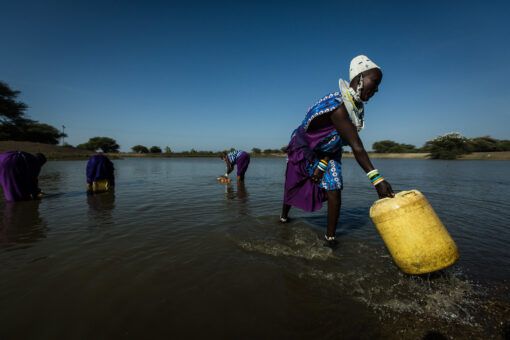
Editorial in 300 journals calls for the climate and nature crisis to be recognised as one indivisible global health emergency
We are facing a global public health emergency which must be recognised for what it is and call on the WHO to make this declaration before or at the seventy-seventh World Health Assembly in May 2024.
In October 2023, we coordinated the publication of an editorial published in 300 health journals across the world calling for the WHO declare a global health emergency.
Editorial by African editors
Africa has suffered disproportionately although it has done little to cause the crisis. The damage to Africa should be of supreme concern to all nations, warn the editors.
In October 2022, we coordinated the publication of an editorial published in over 250 health journals across the world urging world leaders to deliver climate justice for Africa ahead of the UN Climate Change Conference (COP27).
The editorial, which is authored by 16 editors of leading biomedical journals across Africa, was published in 50 African journals and other leading international medical journals including The BMJ, The Lancet, the New England Journal of Medicine, the National Medical Journal of India, and the Medical Journal of Australia.
Never have so many journals come together to make the same call, reflecting the severity of the climate change emergency now facing the world.
The authors say Africa has suffered disproportionately although it has done little to cause the crisis, and urges wealthy nations to step up support for Africa and vulnerable countries in addressing past, present and future impacts of climate change. The climate crisis has had an impact on the environmental and social determinants of health across Africa, leading to devastating health effects, explain the authors.
It is time the global community acknowledges that the climate crisis, while disproportionately affecting the continent, is a global crisis. Action must begin now, and begin where it is hurting most, in Africa. Failure to act will make the crisis everyone’s problem very soon.
Lukoye Atwoli, Professor and Dean of Medical College East Africa and Associate Director of Brain and Mind Institute
Editorial by global health editors
Wealthy nations needed to do much more, much faster.
The editorial made two main points:
- Emergency action is needed by governments to transform societies and economies. The current strategy of encouraging markets to swap dirty for cleaner technologies is not enough. Such a transformation would realise vast positive health benefits, including through better planned cities, high quality jobs, and improved diet.
- Global cooperation hinges on wealthy nations doing more to reduce their emissions and to financially support low-income and vulnerable countries to do the same. High income countries have greater historical responsibility for emissions. They must go far beyond their commitment to provide US$100 billion a year, funding must be equally split between adaptation and mitigation, come from grants not loans, and more funding must go to compensate for existing and inevitable loss and damage.
